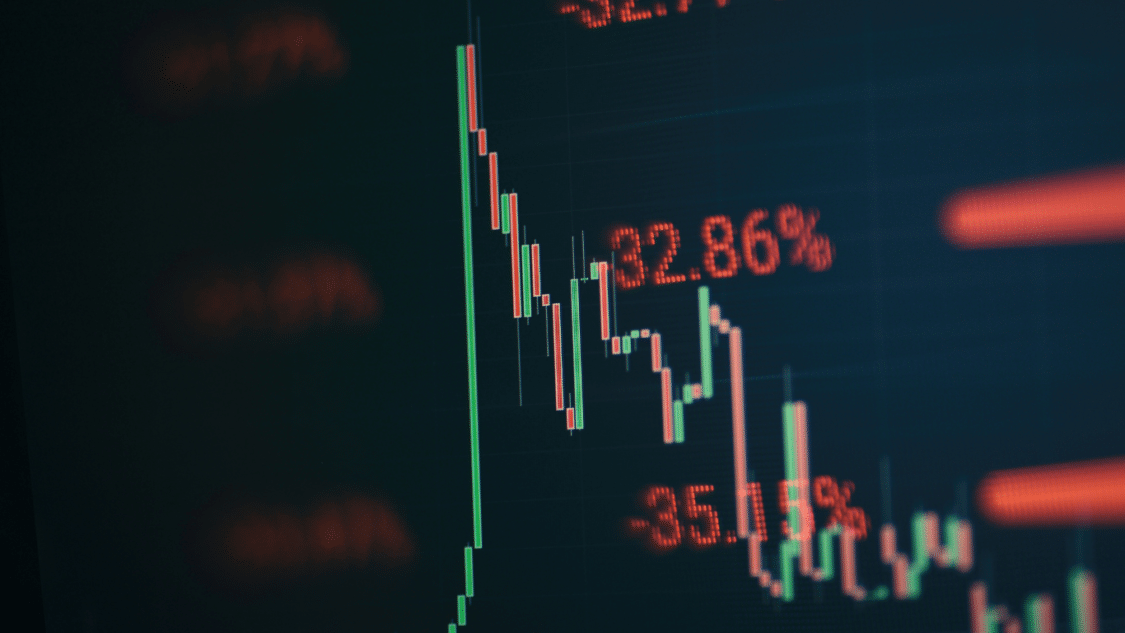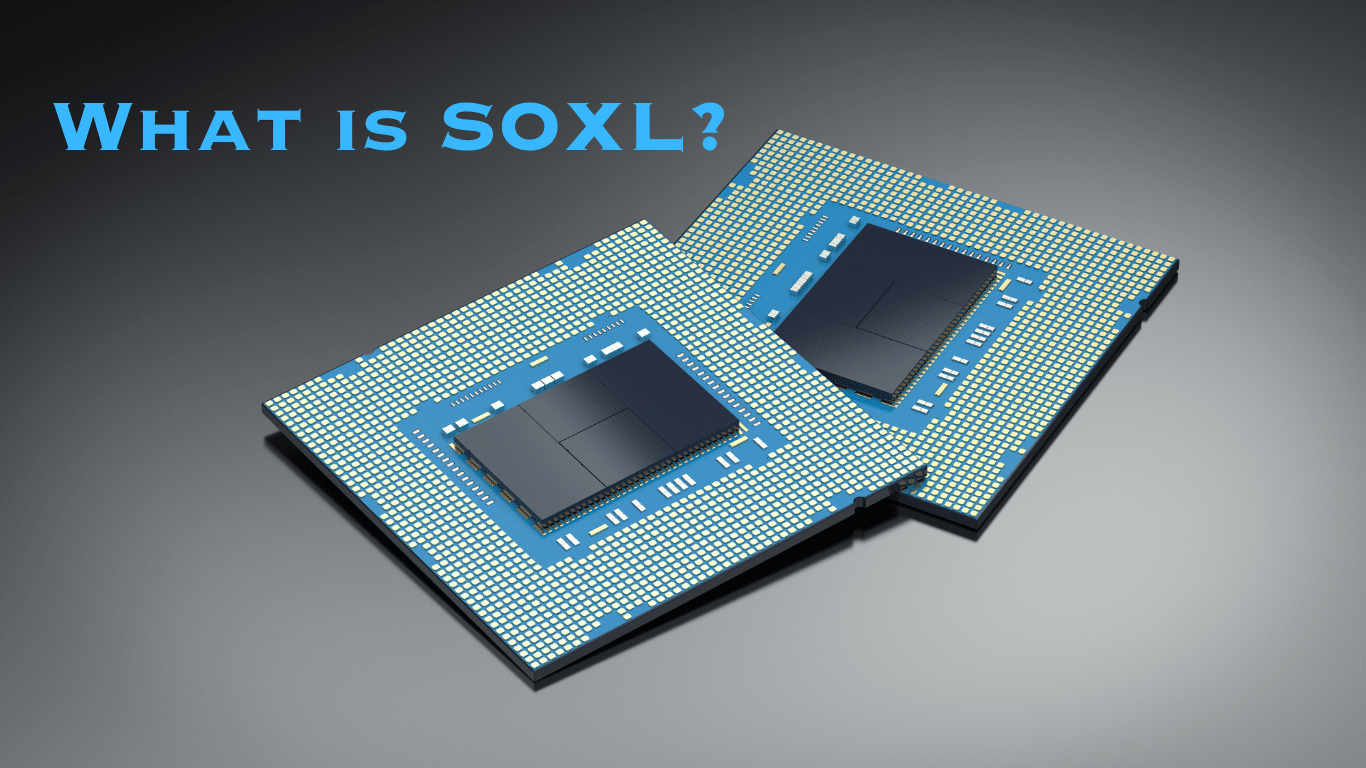What is SOXL? It is a financial instrument that has revolutionised how we live and work. In this article, we will delve into the intricacies of SOXL, understand its basics, evaluate its investment potential, explore the stocks included in it, learn how to trade it and analyse its risks and challenges. By the end of this comprehensive guide, you will be equipped with the proper tips to make an informed decision about SOXL.
Understanding the Basics of SOXL
SOXL, which stands for Direxion’s Daily Semiconductor Bull 3x Shares, is an exchange-traded fund (ETF) that aims to provide investors with triple-leveraged exposure to the performance of the semiconductor index industry. The semiconductor industry plays an important role in shaping our modern world, as semiconductors are the building blocks of electronic devices such as smartphones, computers, and even cars.
The key feature of SOXL is its leverage, which allows investors to amplify their exposure to the semiconductor industry. If the semiconductor industry performs well, SOXL can generate significant returns. However, it is important to note that leverage works both ways and if the industry experiences a downturn, SOXL can also result in substantial losses.
Is SOXL a Good Investment?
Now that we understand the basics of SOXL let’s evaluate its investment potential. As with any investment, it is important to consider various factors before deciding. One of the key factors to consider is the current state of the semiconductor industry. The semiconductor industry has been experiencing growth mainly driven by technological advancements and high demand for electronic devices. Emerging technologies such as AI, Internet of Things, and 5G have further accelerated this growth.
Additionally, it is crucial to assess your risk tolerance and investment goals. Due to its leverage, SOXL is a highly volatile investment objective, meaning it can experience significant price fluctuations on a trading day. If you have a high-risk tolerance and seek higher returns, SOXL could be a suitable investment option. However, if you prefer a more conservative approach, it may be advisable to consider other investment alternatives.
Factors to Consider Before Investing in SOXL

Before diving into the world of SOXL, there are several factors that you should consider. Firstly, it is important to research and understand the direxion of the daily semiconductor industry. This will enable you to gauge the potential growth and profitability of the industry, which in turn can impact the performance of SOXL. Keeping an eye on industry trends, technological advancements, and this competitive industry can provide valuable insights.
Evaluating the performance and historical data of SOXL is crucial. By analysing past performance, you can understand how SOXL has performed during different market conditions and assess its volatility fees and expenses. Additionally, keeping an eye on the expense ratio of SOXL is recommended, as higher expense ratios can eat into your returns over time.
- Market trend: The goal of SOXL is to improve the semiconductor industry’s daily returns, which can be affected by several variables, including supply, demand, innovation, competition, regulation, and geopolitics. A sector upswing can result in huge gains for SOXL, while a sector decline can result in major losses for SOXL. Before investing in SOXL, it is crucial to have a solid understanding of the market trend and the variables influencing it.
- Time horizon: SOXL is irrelevant for long-term investors, as it seeks to achieve its daily investment objective. Due to the impact of compounding, fees, expenditures, and rebalancing, the fund’s returns may diverge considerably from its objective over longer periods. Therefore, SOXL is better suited for short-term traders who can often review and modify their holdings while taking advantage of the sector’s daily swings.
- Risk tolerance: SOXL is a risky investment, as it can increase the sector’s gains and losses by 300%. SOXL can experience large price swings and potentially wipe out a significant portion of its value in a single day. Therefore, investors should have a high-risk tolerance.
- Diversification: Because SOXL is focused on a particular industry and only holds 30 stocks, it is a highly concentrated investment. This implies that any circumstances affecting the semiconductor industry or any of its components might influence SOXL. Investors should diversify their portfolio with other assets with a low or negative correlation with SOXL to lower their total risk and exposure.
- Liquidity: Due to its high average daily trading volume of over 10 million shares and narrow bid-ask gap. The question regarding SOXL being a good investment, is tricky because it is considered a liquid investment. Thus, it is simple for investors to acquire and sell SOXL at reasonable prices and with low transaction fees. However, market circumstances, demand, and supply variables can also affect liquidity. As a result, when trading SOXL, investors should be mindful of the liquidity risk and utilize limit orders.
- Fees: The net expense ratio for SOXL is 0.94%, implying that 0.94% of its assets are used each year to pay management fees and other operational costs. This exceeds the typical cost ratio for leveraged ETFs (0.44%) and technology ETFs (0.48%). Investors should compare SOXL to other options that offer lower prices or greater performance and consider how fees may affect their returns.
Lastly, it is important to diversify your investment portfolio. Investing solely in SOXL can expose you to concentrated risk. By diversifying your portfolio with other investments, you can mitigate the impact of any potential downturn in the semiconductor industry on your overall investment portfolio.
What Stocks Are in SOXL?
SOXL aims to expose investors to the semiconductor industry’s performance. SOXL invests in a basket of stocks representing the industry to achieve this. The stocks included in SOXL are typically large-cap companies that are leaders in the semiconductor space.
Some of the prominent stocks included in SOXL include Advanced Micro Devices (AMD), Intel Corporation (INTC), NVIDIA Corporation (NVDA), and Taiwan Semiconductor Manufacturing Company (TSM). These companies have a strong presence in the semiconductor industry and have been driving innovation and growth.
How to Trade SOXL?
Trading SOXL involves buying and selling shares of the ETF on a stock exchange. To trade SOXL, you will need to have a brokerage account. Once you have set up an account, you can place buy or sell orders for SOXL shares through your broker’s trading platform.

When trading SOXL, it is important to consider the market volatility and risks associated with the ETF. Due to its leverage, SOXL can experience amplified price movements in upward and downward directions. Therefore, monitoring the market closely and setting appropriate stop-loss orders to manage your risk is crucial.
Tips for Trading SOXL Successfully:
Learning how to trade SOXL successfully requires careful planning and execution. Here are a few tips to enhance your trading experience with SOXL:
- Stay Informed: Keep yourself up to date with the news, trends and developments in the semiconductor industry. This will help you make more knowledgable trading decisions based on market trends and events.
- Set Realistic Expectations: SOXL can generate substantial returns in a bullish market due to its leverage. However, it is important to set realistic expectations and not get carried away by short-term gains. Remember to focus on your long-term investment goals.
- Use Stop-Loss Orders: Implementing stop-loss orders can help protect your capital in case of unexpected price movements. Set stop-loss levels once evaluating your risk tolerance and adjust them as the market conditions change.
Should I Buy SOXL? A Comprehensive Analysis
The decision to buy and hold SOXL and the question is SOXL a good investment ultimately varies on your investment goals, risk tolerance, and understanding of the semiconductor industry. If you believe in the industry’s long-term growth potential and are willing to accept the higher volatility associated with leverage, investing in SOXL could be a viable option.

However, it is important to note that investing in SOXL is not suitable for everyone and doesn’t always seek a return. If you have a low-risk tolerance or prefer a more conservative investment approach, it may be advisable to consider other investment options that align with your risk profile.
Risks and Challenges Associated with SOXL:
While learning how to trade SOXL can offer attractive investment opportunities, it is essential to be aware of its risks and challenges. The primary risk of investing in SOXL is the leverage it employs. Leverage can amplify both gains and losses, meaning that if the semiconductor industry experiences a downturn, the losses can be substantial.
Furthermore, SOXL is subject to market risks, such as volatility and liquidity risks. Due to its leveraged nature, SOXL can experience significant price fluctuations, making it a volatile investment. Moreover, if the trading volume in SOXL is low, it can impact the liquidity of the ETF, potentially leading to wider bid-ask spreads and difficulty in executing trades.
Conclusion – What is SOXL?
SOXL is a game-changing technology that can potentially deliver significant returns to investors. However, it is important to approach investing in SOXL cautiously and conduct thorough research. Evaluate your risk tolerance, investment goals, and the current state of the semiconductor industry before making a decision.
By understanding the basics of what is SOXL, what stocks are in SOXL, how to trade SOXL and evaluating its investment potential, learning how to trade it, and being aware of the risks associated; you can make an informed decision about whether SOXL is the right investment for you.
It is important to invest time in educating yourself, keeping up-to-date with relevant information and seeking advice from a professional if necessary. Remember, knowledge is power; with the right knowledge, you can navigate the world of SOXL and potentially reap its rewards.

